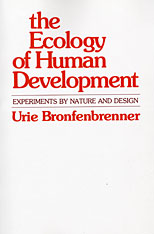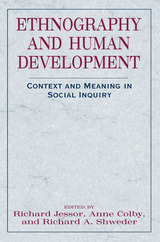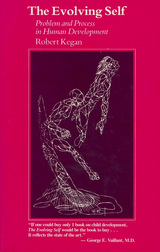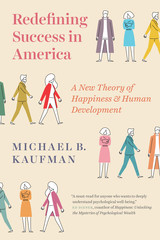
How malleable is human nature? Can an individual really change in meaningful ways? Or, are there immutable limits on the possibilities of human growth set in place by the genes and by the early experiences of childhood? These are questions which touch our deepest political and personal concerns; and they have long been a matter of fierce debate in the behavioral sciences.
Constancy and Change in Human Development takes a thorough inventory of the growing body of research which now bears upon these questions. Editors Brim and Kagan have assembled an outstanding group of specialists in human growth and commissioned them to assess questions of change and continuity in physical, mental, and emotional development throughout the life span. Beginning with three general chapters which place the ideas of continuity and discontinuity in historical and philosophical perspective, the book moves across a broad spectrum of developmental issues, ranging from the basic adaptability of the human central nervous system to the effects of social institutions which seek to promote individual change. There are chapters on physical growth, health, cognitive development, personality, social attitudes and beliefs, occupational careers, psychosis, and criminal behavior. Throughout these chapters, the recurring question is whether development can be seen as a continuous process in which early stages reliably predict subsequent events, or whether instead there are sharp discontinuities which render individual development essentially unpredictable. The variety and richness of the answers to this question provide a summary of human development which is unparalleled in any other single volume.

Here is a book that challenges the very basis of the way psychologists have studied child development. According to Urie Bronfenbrenner, one of the world’s foremost developmental psychologists, laboratory studies of the child’s behavior sacrifice too much in order to gain experimental control and analytic rigor. Laboratory observations, he argues, too often lead to “the science of the strange behavior of children in strange situations with strange adults for the briefest possible periods of time.” To understand the way children actually develop, Bronfenbrenner believes that it will be necessary to observe their behavior in natural settings, while they are interacting with familiar adults over prolonged periods of time.
This book offers an important blueprint for constructing such a new and ecologically valid psychology of development. The blueprint includes a complete conceptual framework for analysing the layers of the environment that have a formative influence on the child. This framework is applied to a variety of settings in which children commonly develop, ranging from the pediatric ward to daycare, school, and various family configurations. The result is a rich set of hypotheses about the developmental consequences of various types of environments. Where current research bears on these hypotheses, Bronfenbrenner marshals the data to show how an ecological theory can be tested. Where no relevant data exist, he suggests new and interesting ecological experiments that might be undertaken to resolve current unknowns.
Bronfenbrenner’s groundbreaking program for reform in developmental psychology is certain to be controversial. His argument flies in the face of standard psychological procedures and challenges psychology to become more relevant to the ways in which children actually develop. It is a challenge psychology can ill-afford to ignore.

Part 1, informed by a post-positivist philosophy of science, argues for the validity of ethnographic knowledge. Part 2 examines a range of qualitative methods, from participant observation to the hermeneutic elaboration of texts. In Part 3, ethnographic methods are applied to issues of human development across the life span and to social problems including poverty, racial and ethnic marginality, and crime.
Restoring ethnographic methods to a central place in social inquiry, these twenty-two lively essays will interest everyone concerned with the epistemological problems of context, meaning, and subjectivity in the behavioral sciences.

The Evolving Self focuses upon the most basic and universal of psychological problems—the individual’s effort to make sense of experience, to make meaning of life. According to Robert Kegan, meaning-making is a lifelong activity that begins in earliest infancy and continues to evolve through a series of stages encompassing childhood, adolescence, and adulthood. The Evolving Self describes this process of evolution in rich and human detail, concentrating especially on the internal experience of growth and transition, its costs and disruptions as well as its triumphs.
At the heart of our meaning-making activity, the book suggests, is the drawing and redrawing of the distinction between self and other. Using Piagetian theory in a creative new way to make sense of how we make sense of ourselves, Kegan shows that each meaning-making stage is a new solution to the lifelong tension between the universal human yearning to be connected, attached, and included, on the one hand, and to be distinct, independent, and autonomous on the other. The Evolving Self is the story of our continuing negotiation of this tension. It is a book that is theoretically daring enough to propose a reinterpretation of the Oedipus complex and clinically concerned enough to suggest a variety of fresh new ways to treat those psychological complaints that commonly arise in the course of development.
Kegan is an irrepressible storyteller, an impassioned opponent of the health-and-illness approach to psychological distress, and a sturdy builder of psychological theory. His is an original and distinctive new voice in the growing discussion of human development across the life span.

Here is a major new work on human infancy written by one of the country's leading developmental psychologists and two distinguished colleagues. At its core is the long-awaited report of the authors' six-year study of infant daycare. Important in its own right, this experiment becomes the occasion for a wide-ranging discussion of cognitive and emotional processes in infancy, of the effects of early experience on later growth, and of the deep-seated cultural and historical assumptions that underlie our views of human development.
For those concerned with social policy, the book provides the best empirical assessment now available of the effects of group care on the psychological well-being of infants. It also supplies a blueprint for quality daycare that may well stand as a model for future nurseries.
For those interested in the course of cognitive and emotional development, the book provides rich information about the major growth functions that characterize human infancy. It also outlines an explanation of these growth functions that links changes in emotional behavior to the maturation of underlying cognitive processes in a new and provocative way.
And for everyone interested in human nature, the book of offers a controversial thesis about the discontinuity of psychological growth that challenges some of our most fundamental assumptions about the nature of individual development.

Here is a major new work on human infancy written by one of the country’s leading developmental psychologists and two distinguished colleagues. At its core is the long-awaited report of the authors’ six-year study of infant day care. Important in its own right, this experiment becomes the occasion for a wide-ranging discussion of cognitive and emotional processes in infancy, of the effects of early experience on later growth, and of the deep-seated cultural and historical assumptions that underlie our views of human development.
For those concerned with social policy, the book provides the best empirical assessment now available of the effects of group care on the psychological well-being of infants. It also supplies a blueprint for quality daycare that may well stand as a model for future nurseries. For those interested in the course of cognitive and emotional development, the book provides rich information about the major growth functions that characterize human infancy. It also outlines an explanation of these growth functions that links changes in emotional behavior to the maturation of underlying cognitive processes in a new and provocative way. And for everyone interested in human nature, the book of offers a controversial thesis about the discontinuity of psychological growth that challenges some of our most fundamental assumptions about the nature of individual development.
For this paperback edition, the statistical summary has been removed from the appendix to shorten the work and make it even more appealing to the general reader.

Returning to the legendary Harvard Student Study of undergraduates from the 1960s and interviewing participants almost fifty years later, Kaufman shows that formative experiences in family, school, and community largely shape a future adult’s worldview and well-being by late adolescence, and that fundamental change in adulthood, when it occurs, is shaped by adult family experiences, not by ever-greater competitive success. Published research on general samples shows that these patterns, and the book’s findings generally, are broadly applicable to demographically varied populations in the United States.
Leveraging biography-length clinical interviews and quantitative evidence unmatched even by earlier landmark studies of human development, Redefining Success in America redefines the conversation about the nature and origins of happiness, and about how adults develop. This longitudinal study pioneers a new paradigm in happiness research, developmental science, and personality psychology that will appeal to scholars and students in the social sciences, psychotherapy professionals, and serious readers navigating the competitive journey.
READERS
Browse our collection.
PUBLISHERS
See BiblioVault's publisher services.
STUDENT SERVICES
Files for college accessibility offices.
UChicago Accessibility Resources
home | accessibility | search | about | contact us
BiblioVault ® 2001 - 2024
The University of Chicago Press









